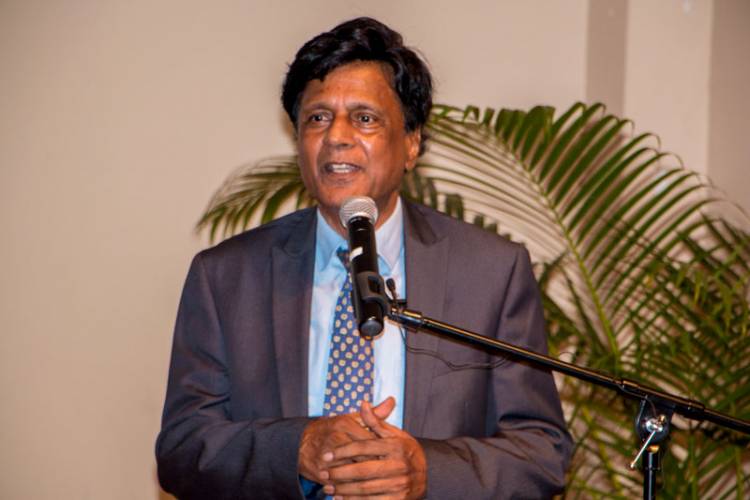I recently participated in a virtual conference on Phagwa that involved academics, activists and the general public from India and most of the 18 or so countries to which Indentured Labourers had been shipped from India between 1834 and 1917. Concerns were expressed by many about some of the changes that have crept into the celebration of the festival – also called Holi – both in India and the Diaspora. For instance, one Trinidadian contributor feared that the festival could become just another bacchanalian Carnival “wine-down”. Her presentation was titled, “Cultural Appropriation, Secularization, Sacrilege, Desecration and Desacralization of Phagwa”. I would like to share a perspective on this concern.
Firstly, we have to accept that changes in any form of organized human activity is inevitable over the years. It is interesting that most persons from India see our customs as being fossilized in 19th century rural India, particularly from the Bhojpuri belt of Eastern Uttar Pradesh and Western Bihar, from where most of us Indians in the Caribbean originated.
But the perceived “problem” is partially semantic because we are describing our activities originating from our Indian roots, using English words that come with their own connotations and history. We call Phagwa a “festival”, which, in the west is a celebration of a usually (but not always) religious event. And here language already intercedes since “religion” is a term to describe the organized and centralized Abrahamic institutions in Judaism, Christianity and Islam that are quite at variance from Hindu Dharma”, which more a “way of life”. Carnival, for instance as a western festival, is a celebratory one in the Caribbean, originally connected to Lent, a Christian occasion, but has become completely disjunctured from its religious origins. Holi, on the other hand, actually is an “utsav” – an aspect of Hindu Dharma – with its own “Lakshanas” or characteristics not all shared by festivals of western “religions”.
Utsavs are intended to performatively transmit selected values towards the general societal good of ensuring that truth prevails over untruth. And this, if you think about it, is the only way values can be actually transmitted: through action. “Do as I do, not as I say”, says the Hindu. The question to be asked, therefore, when we bemoan changes in the commemorate of Holi is “what is the value or values that are sought to be transmitted” and whether the changes bemoaned are helping or hindering that transmission?
Most Hindu festivals originated in antiquity and were related to cycles of nature that brought the community together to commemorate the occasion like, for instance, the beginning of harvesting. Most of these commemorations became associated over time with stories that encapsulated particular values Dharmic leaders felt were needed to be transmitted. The name itself, “Phagwa”, is derived from Phalgun, the lunar month that normally falls in March and reminds us of the origin of the festival – towards the end of the harvesting season. The threshed stalks of rice or wheat would be burnt to celebrate the crops that delivered the life-sustaining grains.
The celebratory activity in the Braj Region of Uttar Pradesh, was tied to that of the pure and innocent love between the children Radha and Krishna and the Gopis, whose love for the divine Krishna we should all try to emulate. In the Bhojpuri Belt, the associated “Dharmic” story is that of Prahalad and his father King Hiranyakashipur. In South India where some of our Indentured Indians originated, Holi is not even celebrated. Each story stresses specific values.
The story of Prahalad and his tyrannical father stresses the obligation to speak truth to power in the quest for good to triumph over evil. That the ruler was Prahalad’s father emphasizes that no one should be allowed to run roughshod over others. We have a duty to stand up and be counted. One participant from India in the Conference recounted that in her area, effigies of politicians and others who committed outrageous acts against society, were burnt on Holi.
This goal of Dharma to create a harmonious society is not achieved spontaneously, but only through our concrete actions. Prahalad would have inherited the dictatorial powers accumulated by his father but he stood up for truth, convinced others around him – including his fellow schoolchildren – and helped remove the tyrant.
Guyanese from all walks of life need to heed this lesson.
The Killing of Hiranyakashipur
